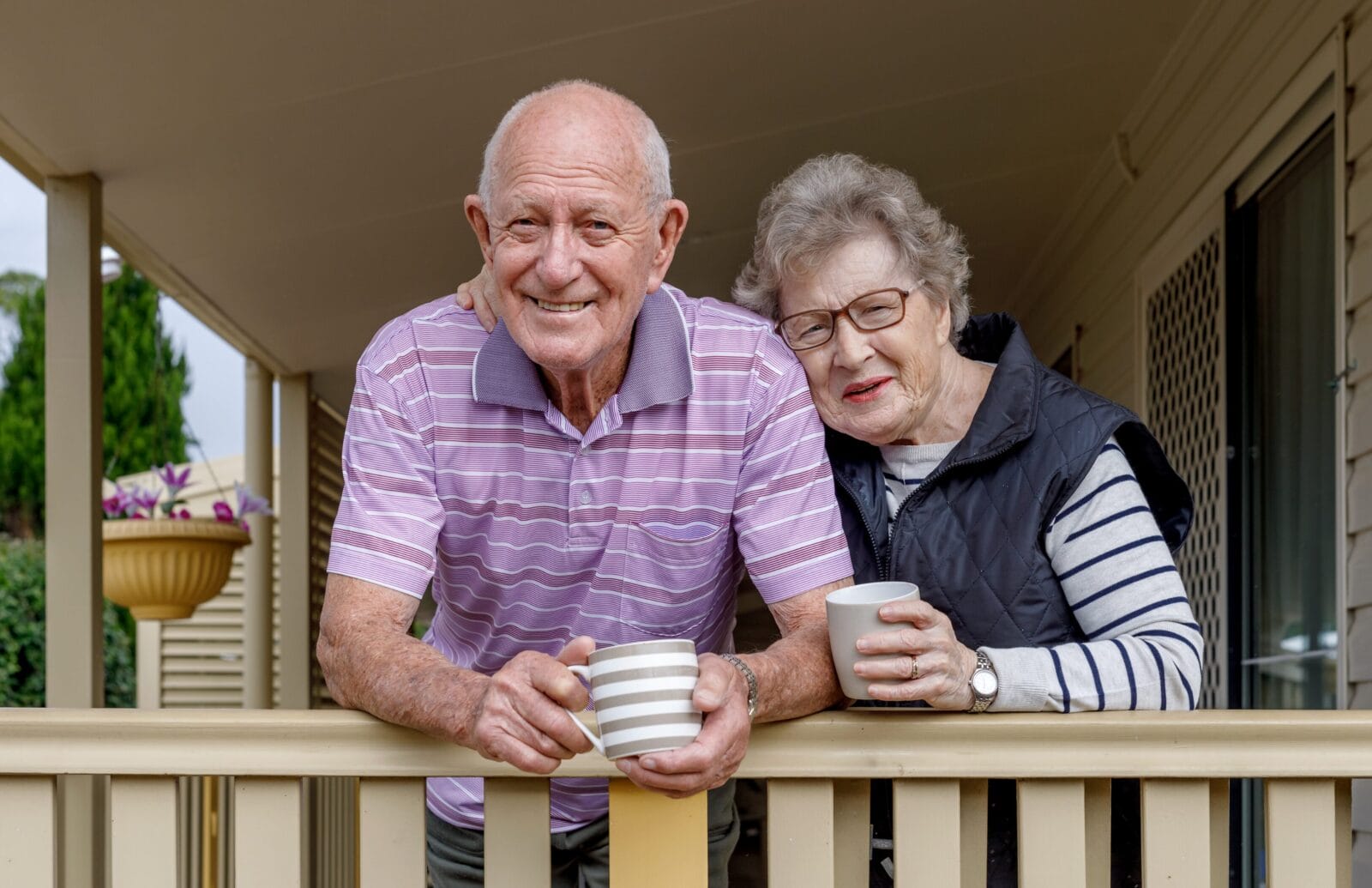If you’re a senior or someone who has senior loved ones, you’ve probably heard the term “aging in place.” Aging in place is the practice of remaining in your home as you get older, rather than moving to an assisted living or senior living community. This is a popular option for seniors who value independence and privacy, but aging in place isn’t right for everyone. Remaining in your home can come at the cost of safety and security, and may not be possible for all seniors. Here, we’ll explore the pros and cons of aging in place to help you make an informed decision about whether it’s the right choice for you or your loved one.
Pros of Aging in Place
Staying in your home can come with some benefits. This includes:
- Potential for more privacy. If you or your loved one lives in a single-family home, it’s hard to beat that level of privacy. Most senior living communities are composed of apartments or condominiums that may share walls with other senior living apartments. However, if you or your loved one currently lives in an apartment or condo, the level of privacy would likely be the same as in a senior living community.
- Comfort and familiarity. Your home may be filled with happy memories, as well as furniture and belongings that you’ve carefully selected over the years to bring you joy and comfort. Moving into a new apartment, and one that often comes fully furnished, may not feel as “homey” at first, and would require re-adjusting to a new place.
- Full independence and control. Aging in place gives you the greatest degree of independence. Independent living communities still give you complete independence over your schedule and choices, but you will have your needs met by the community, including bills and utilities, as well as housekeeping, yard work, and even laundry. Some seniors may wish to retain these responsibilities, rather than allowing someone else control.
- Potential lower cost. Aging in place can be cost-effective for some seniors in some situations, like those who own their home and all vehicles without any existing loans, and who don’t need any assistance with household tasks, yard work, or personal care. Some home modifications and in-home services could still be less expensive than senior living, depending on where you live and whether or not you are debt-free.
Cons of Aging in Place
Aging in place also has some serious caveats, including:
- Home safety challenges. Single-family homes aren’t always set up safely for seniors. For example, stairs can pose a challenge for aging seniors. Most homes and apartments aren’t equipped with elevators. Bathrooms without grab bars and senior-friendly bathtubs or showers could lead to falls.
- Reduced peace of mind. Loved ones of seniors worry about them. Falls, injuries, stroke, and heart attack can occur unexpectedly, and are common in older people.
- Less access to medical care. Senior living communities have unmatched access to medical care professionals, with nurses and staff members on-call 24/7 to provide any needed assistance or care. For seniors aging in place, a live-in home healthcare provider is the only way to get this level of access to medical care.
- Difficulty managing responsibilities. Managing laundry, housework, and lawn care can become overwhelming or impossible for seniors. It may be necessary to hire help for tasks like cleaning, mowing the lawn, and laundry. This can be both expensive and inconvenient, as it requires managing the people who are managing the household tasks, as well as hiring them and paying them.
- Social isolation. Did you know that loneliness is as bad for your health as smoking 15 cigarettes a day (source)? Living alone can be a recipe for loneliness and social isolation. Aging in place can compound this danger. Seniors may become less likely to drive or even go walking outside.
- Increased burden on loved ones. Loved ones of seniors are likely to end up “picking up the slack” of anything seniors are unable to do, like housework, yard work, and driving to appointments. Even if a senior is able to manage all of their responsibilities independently, loved ones are still likely to feel responsible to prevent loneliness and depression.
Important Considerations for Aging in Place
If you decide that aging in place is the right choice for you or your loved one, you’ll still need to consider a few changes to your home and lifestyle. You may need to make home modifications to ensure safety in the future, like grab bars in bathrooms, stair lifts, walk-in showers, or even widened doorways and ramps to allow walkers or wheelchairs to move freely throughout your home. For many seniors, outsourcing physically demanding tasks like lawn care and home maintenance may be necessary.
It is also important to make a financial plan for what you will do if you need more assistance later on, because hiring assistance for daily personal care and medical help can quickly become very expensive.
Don’t forget to consider your mental health, too! If you’re living alone, make a regular plan for when you will see friends and loved ones. A daily walking buddy, weekly book club, or regular visits to children or grandchildren will go a long way to prevent depression and isolation.
Technology can help resolve some concerns about safety. An emergency alert pendant, alarm system, and exterior home cameras can help seniors and their loved ones feel safer and have easier access to help if the need should arise.
Alternatives to Aging in Place
You have plenty of options if aging in place isn’t the right choice for you or your loved one. For many people, the best choice is moving to a senior living community. If you still want to maintain your independence, independent living communities can give you all of the good parts of being independent, without the negative aspects of managing and maintaining your home, outdoor space, finances, and vehicles. Many independent living communities also offer assisted living within the same apartment, so you can get help with medical conditions or personal care without having to move or give up living in your own space. Memory care is typically the best choice for seniors with Alzheimer’s or the later stages of dementia, and offers the most safety and security.
Considering senior living? Visit a Stellar Living community near you today. Our Family Advisors can provide you with transparent line-item pricing, and answer any questions you may have about senior living. Aging in place is a great option, but aging in place within a senior living community might just end up being the best idea of all!




